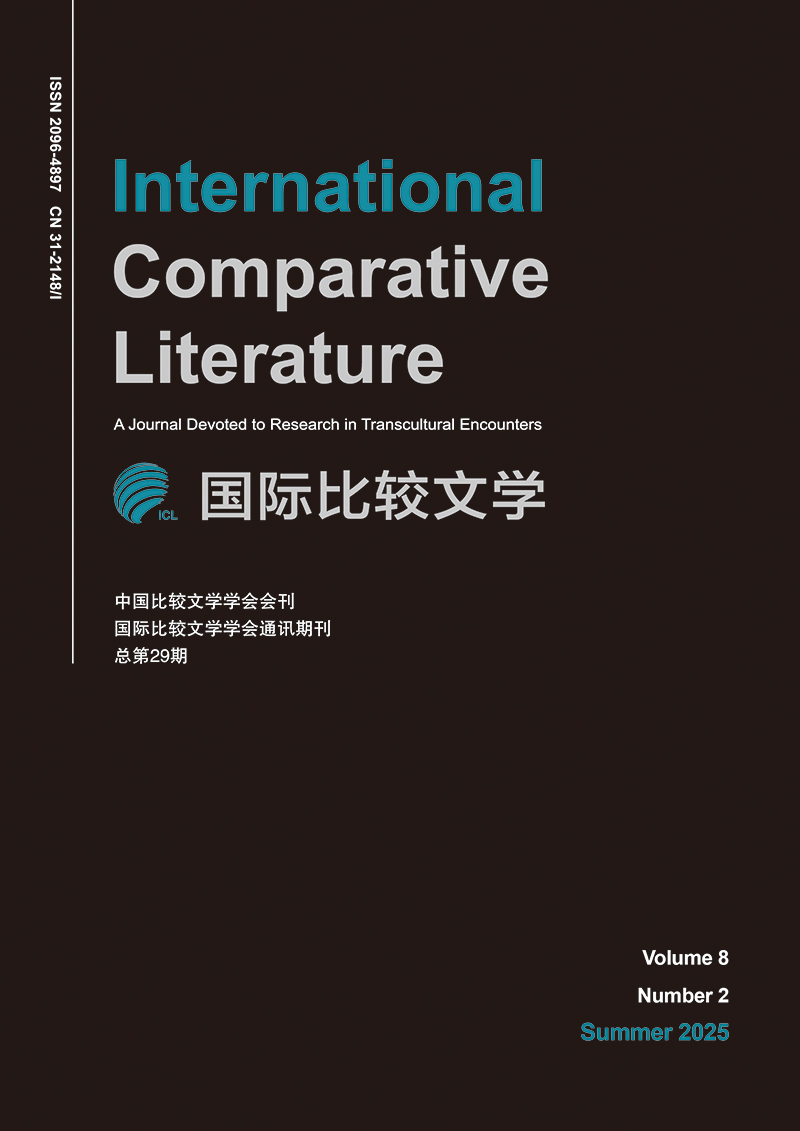|
[1]
|
.段成式《酉阳杂俎》,中华书局,1981年。
|
|
[2]
|
.杨宪益《中国的扫灰娘故事》,《译余偶拾》,山东画报出版社,2006年。
|
|
[3]
|
.Alexander Beecroft, An Ecology of World Literature:From Antiquity to the Present Day, London: Verso, 2015.
|
|
[4]
|
.Alexandra Hoffmann, “Cats and Dogs, Manliness, and Misogyny: On the Sindbad-nameh as World Literature,” in Mostafa Abedinifard et al. (eds.), Persian Literature as World Literature, pp. 137-153.
|
|
[5]
|
.Amir Irani-Tehrani, “The Birth of the German Ghazal out of the Spirit of World Literature”,in Abdinifard et al.(eds.), Persian Literature as World Literature, New York: Bllomsbury Academic, 2021, pp. 17-34.
|
|
[6]
|
.Amirhossein Vafa, Omid Azadibougar and Mostafa Abedinifard, “Introduction: Decolonizing a Peripheral Literature,” in Abedinifard, Azadibougar and Vafa (eds.), Persian Literature as World Literature, New York: Bloomsbury Academic, 2021, pp. 1-17.
|
|
[7]
|
.Arthur Waley, “The Chinese Cinderella Story,” Folklore 58, 1 (March 1947), pp. 226-238.
|
|
[8]
|
. D’haen, The Routledge Concise History of World Literature, London: Routledge, 2012.
|
|
[9]
|
. David Damrosch, “La République mondiale des lettres in the World Republic of Scholarship,”Journal of World Literature 5, 2 (2020), pp. 174-188.
|
|
[10]
|
. Gisèle Sapiro and Delia Ungureanu, “Pascale Casanova’s World of Letters and Its Legacies:Introduction,” Journal of World Literature 5, 2 (2020), pp. 159-168.
|
|
[11]
|
.Hans-Georg Gadamer, Truth and Method, English trans. revised by Joel Weinsheimer and Donald G. Marshallm 2bd rev. ed., New York: Crossroad, 1989.
|
|
[12]
|
. Jérôme David, “Of Rivalry and Revolution: Pascale Casanova’s World Republic of Letters,” in Theo D’haen, David Damrosch, and Djelal Kadir (eds.), The Routledge Companion to World Literature, 2nd ed., London: Routledge, 2023, pp. 85-90.
|
|
[13]
|
.Pascale Casanova, The World Republic of Letters, trans. M. B. DeBevoise, Cambridge,Mass: Harvard University Press, 2004.
|
|
[14]
|
.Paulo Lemos Horta, “Tales of Dreaming Men: Shakespeare, ‘The Old Hunchback,’ and‘The Sleeper and the Waker’,” Journal of World Literature, 2, 1 (2017), pp. 276-296.
|
|
[15]
|
. Peter Brooks, Reading for the Plot: Design and Intention in Narrative, New York: Vintage,1984.
|
|
[16]
|
. Ruth B. Bottigheimer, Fairy Tales: A New History, Albany: State University of New York Press,2009.
|
|
[17]
|
.Theo D’haen, “J. J. Slauerhoff, Dutch Literature and World Literature,” in José Luís Jobim(ed.), Literary and Cultural Circulation, Oxford: Peter Lang, 2017, pp. 143-157.
|
|
[18]
|
.Theo D’haen, “Major / Minor in World Literature,” Journal of World Literature 1, 1 (2016),pp. 29-38.
|
|
[19]
|
.Wolfgang von Goethe, “Conversations with Eckermann on Weltliteratur (1827),” in David Damrosch (ed.), World Literature in Theory, Chichester: Wiley Blackwell, 2014, pp. 15-21.
|

 点击查看大图
点击查看大图



 下载:
下载:

